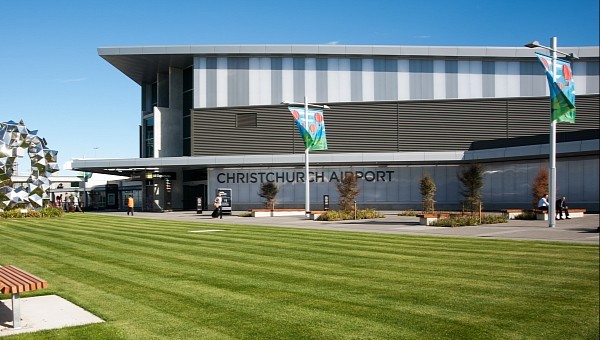Airbus has proven to be one of the leaders when it comes to decarbonizing aviation, and its efforts are now reaching New Zealand. A new consortium established in the country is planning to transform Kiwi flights by focusing on green hydrogen.
Last week, Air New Zealand unveiled multiple collaborations with the same goal. It wants to sport a different kind of regional fleet as soon as the next decade dawns. For that particular goal, the airline is looking at various paths, from retrofitting solutions to brand-new all-electric aircraft. But it’s also part of a newly-established consortium, and here the focus is on a single, key element – hydrogen.
It has a straightforward name, the Hydrogen Consortium, and it was recently launched at the Christchurch Airport. Like other airports around the world, Christchurch is also starting to double as an innovation hub for future green technologies. It will soon become the host of Kowhai Park, described as a renewable energy facility that will unfold over 400 hectares (almost 2.5 acres).
The Consortium is supposed to cover the major aspects of hydrogen as an aviation fuel alternative. Hiringa Energy brings the perspective of a green fuel producer and supplier. It’s going to kick things off this year with four high-capacity refueling stations, and expand throughout the country as soon as next year.
Fabrum is a specialist when it comes to liquid hydrogen and will bring a much-needed expertise in dedicated fuel tanks. It already has the know-how – its technology powered the pioneering zero-emission chase boat for the Emirates Team New Zealand, the Chase Zero. From that, it took a leap and applied a similar technology to aircraft, in the form of a liquid hydrogen fuel tank.
The other two partners in the Consortium are FFI (Fortescue Future Industries, a green tech company) and Airbus, who has developed two important concepts, the ZEROe aircraft and the dedicated hydrogen hubs at airports.
The first step for the Consortium will be to complete the research phase by the end of this year. Next, it will look at the requirements for hydrogen flight tests in New Zealand. Air New Zealand wants to launch the first hydrogen-powered commercial flight by 2026, so there’s no time to waste. Airbus, in turn, is focusing more on the long-term solution, which is an all-new hydrogen aircraft that could be ready for take-off by 2035.
Either way, it’s a team effort. Green flights are possible only with the adequate infrastructure and supply chain in place. Hydrogen is slowly changing sectors like trucking or public transportation, and it could do the same for aviation. This is what New Zealand Consortium is working on, and it could turn out to become one of the first in the world to bring commercial passenger flights with zero emissions.
It has a straightforward name, the Hydrogen Consortium, and it was recently launched at the Christchurch Airport. Like other airports around the world, Christchurch is also starting to double as an innovation hub for future green technologies. It will soon become the host of Kowhai Park, described as a renewable energy facility that will unfold over 400 hectares (almost 2.5 acres).
The Consortium is supposed to cover the major aspects of hydrogen as an aviation fuel alternative. Hiringa Energy brings the perspective of a green fuel producer and supplier. It’s going to kick things off this year with four high-capacity refueling stations, and expand throughout the country as soon as next year.
Fabrum is a specialist when it comes to liquid hydrogen and will bring a much-needed expertise in dedicated fuel tanks. It already has the know-how – its technology powered the pioneering zero-emission chase boat for the Emirates Team New Zealand, the Chase Zero. From that, it took a leap and applied a similar technology to aircraft, in the form of a liquid hydrogen fuel tank.
The other two partners in the Consortium are FFI (Fortescue Future Industries, a green tech company) and Airbus, who has developed two important concepts, the ZEROe aircraft and the dedicated hydrogen hubs at airports.
The first step for the Consortium will be to complete the research phase by the end of this year. Next, it will look at the requirements for hydrogen flight tests in New Zealand. Air New Zealand wants to launch the first hydrogen-powered commercial flight by 2026, so there’s no time to waste. Airbus, in turn, is focusing more on the long-term solution, which is an all-new hydrogen aircraft that could be ready for take-off by 2035.
Either way, it’s a team effort. Green flights are possible only with the adequate infrastructure and supply chain in place. Hydrogen is slowly changing sectors like trucking or public transportation, and it could do the same for aviation. This is what New Zealand Consortium is working on, and it could turn out to become one of the first in the world to bring commercial passenger flights with zero emissions.








